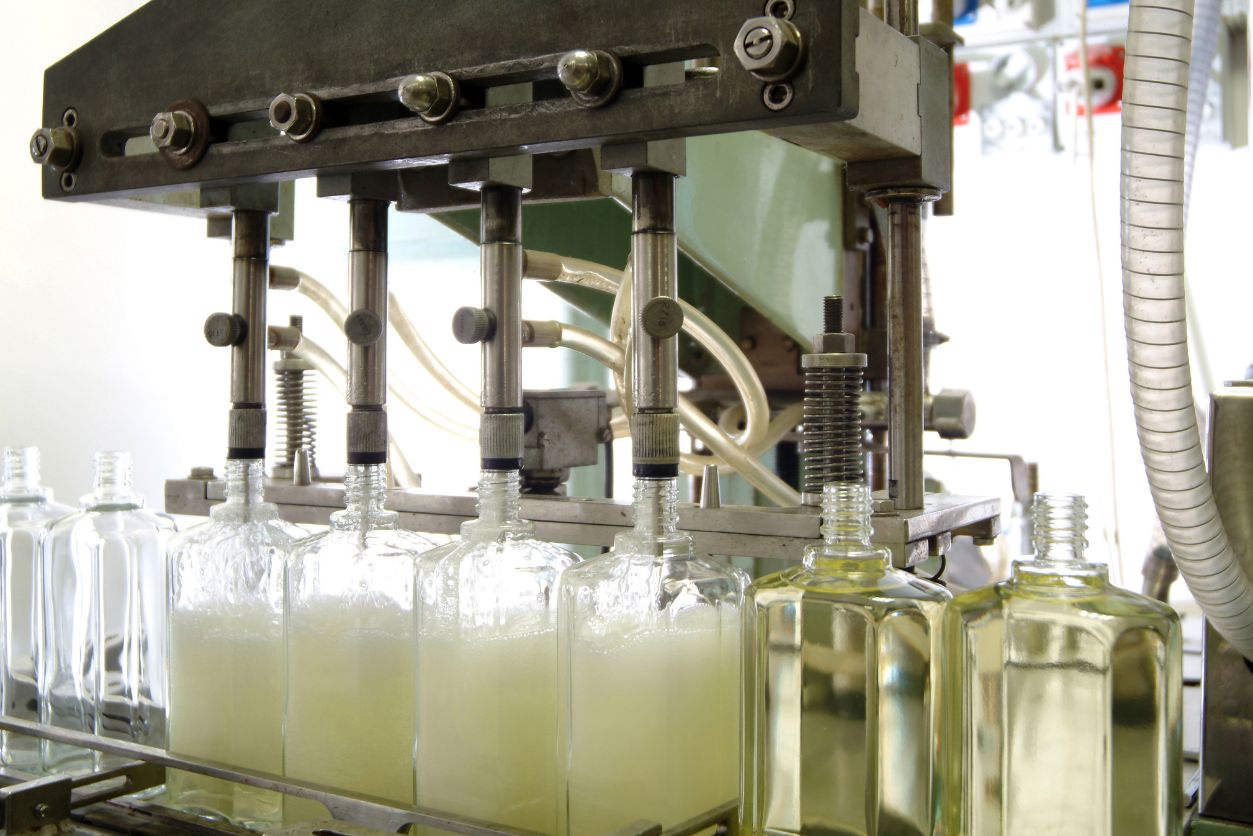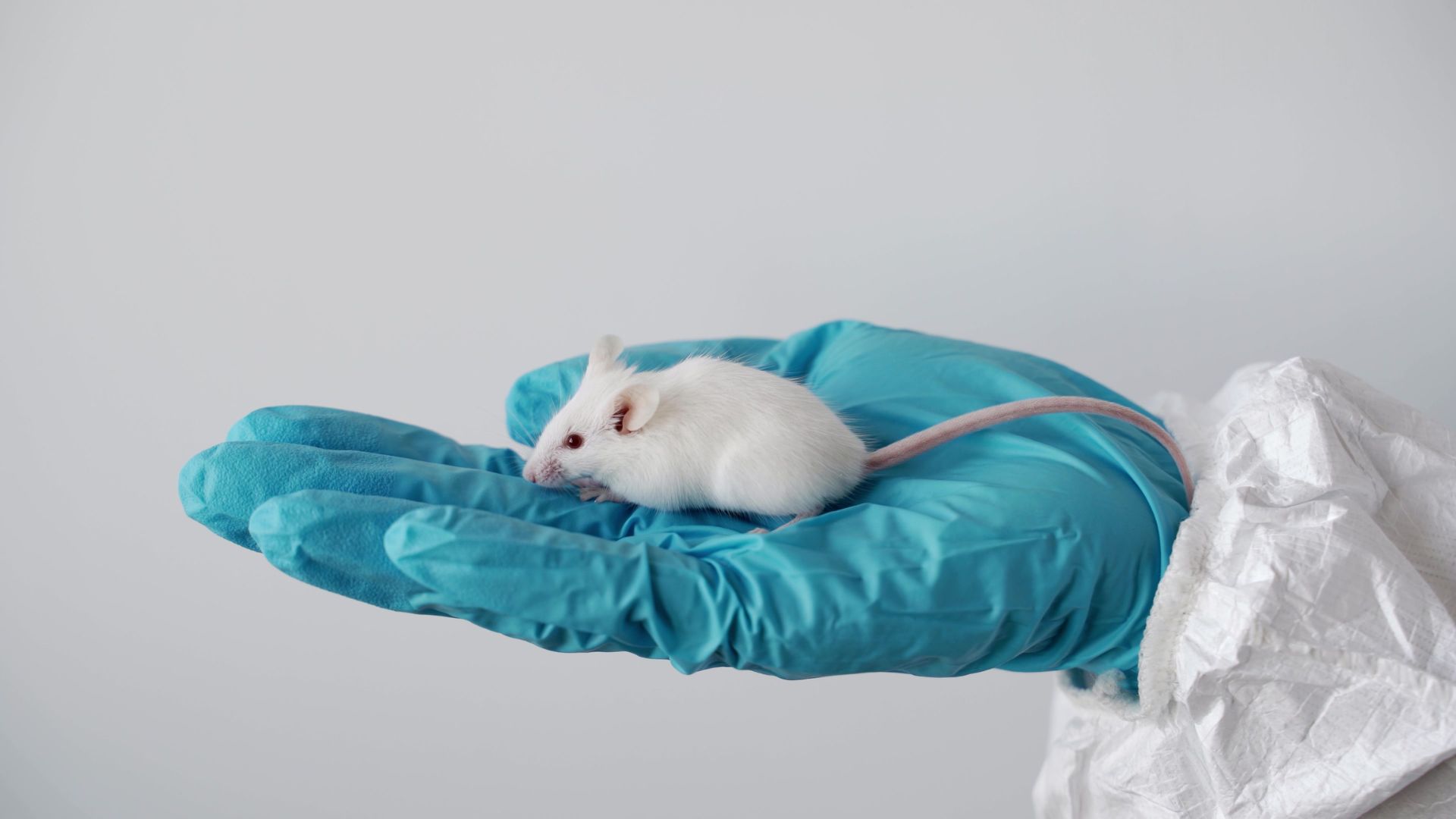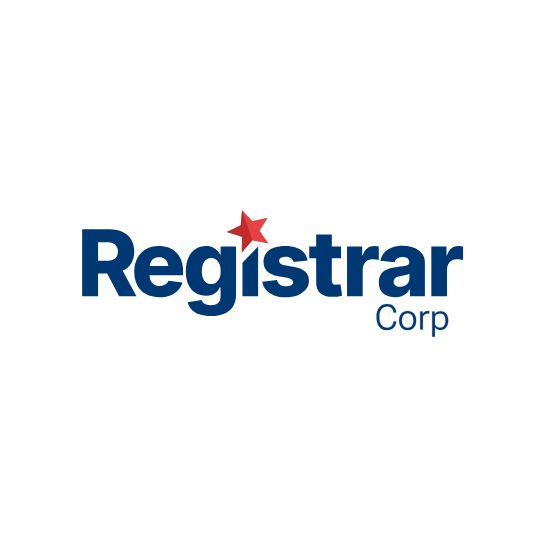The Modernization of Cosmetics Regulation Act (MoCRA) represents a groundbreaking change in cosmetic industry standards within the United States. Enacted in 2023, MoCRA equips the Food and Drug Administration (FDA) with expanded oversight over cosmetics, requiring adherence to rigorous Good Manufacturing Practices (GMPs) that now prioritize consumer safety and product integrity at an unprecedented level. Previously, the cosmetics industry followed a set of voluntary guidelines, but with MoCRA, GMPs are now mandatory, shifting the framework from optional best practices to essential regulatory standards.
MoCRA’s transformative impact on GMPs reflects a broader push for quality and transparency in manufacturing. This article examines the specific changes MoCRA brings to GMPs in the cosmetic industry, unpacking the core components and practical steps companies can take to meet the new requirements.
Understanding MoCRA & Its Impact on Cosmetic GMPs
MoCRA’s passage has ushered in an era of stringent regulatory oversight in the cosmetic industry, aligning cosmetic production standards closer to those in pharmaceuticals and other highly regulated sectors. As a historic piece of legislation, MoCRA not only strengthens the FDA’s authority over cosmetics but also sets a precedent for stricter safety, quality, and transparency requirements throughout the manufacturing process. For many cosmetics companies, the shift to MoCRA compliance means re-evaluating and updating operational practices to meet the newly enforced GMP requirements.
Key Goals of MoCRA in GMPs
MoCRA’s core objectives focus on establishing a robust foundation for product safety and quality within the cosmetics sector. Unlike the former voluntary standards, MoCRA enforces GMP requirements to mitigate safety risks and instill confidence among consumers and stakeholders alike. This section explores the essential goals of MoCRA:
- Enhancing Product Safety: MoCRA’s primary aim is to ensure that all cosmetic products are safe for consumers, free from harmful contaminants, and manufactured under stringent quality conditions.
- Promoting Transparency and Accountability: The act enforces clear labeling practices and traceability requirements to enhance transparency, empowering consumers with information about product ingredients and safety testing.
- Reducing Compliance Complexity: By creating a unified regulatory standard, MoCRA minimizes the patchwork of state-level regulations, simplifying compliance processes for companies operating across multiple jurisdictions.
Through these objectives, MoCRA redefines cosmetic GMPs, emphasizing a comprehensive approach to quality management that ensures consistency, safety, and efficiency in cosmetic production.
Core Components of MoCRA-Driven GMPs
Under MoCRA, Good Manufacturing Practices (GMPs) are no longer optional for cosmetics manufacturers—they are now a regulatory requirement enforced by the FDA. These GMPs outline stringent standards for manufacturing, packaging, labeling, and holding practices to ensure consumer safety and product quality.
For cosmetic companies, adapting to MoCRA’s GMP requirements means implementing a robust quality management system that addresses each stage of production with precise controls and documented procedures.
Facility & Equipment Requirements
To meet the standards of MoCRA GMPs, cosmetics manufacturers must ensure their facilities and equipment are designed, maintained, and monitored to prevent contamination and ensure consistent product quality. This includes proper sanitation, adequate lighting, and temperature control within the manufacturing environment.
- Facility Design and Maintenance: MoCRA requires facilities to be equipped with adequate ventilation, plumbing, and space for operations to ensure hygienic conditions. All equipment used in production must be regularly cleaned and calibrated to maintain consistent functionality.
- Contamination Control: MoCRA emphasizes strict contamination control measures, requiring manufacturers to have protocols in place to prevent cross-contamination during manufacturing. This includes establishing dedicated areas or using appropriate separation techniques for raw materials and finished products.
- Routine Inspections and Maintenance: The act mandates regular inspections and maintenance schedules for all equipment to identify and address potential risks before they impact production quality.
Personnel Training & Hygiene Standards
Personnel handling cosmetic products must be trained in GMP principles to prevent errors and contamination risks in manufacturing. MoCRA outlines specific requirements for personnel training and hygiene standards to ensure a skilled, informed workforce.
- GMP Training Programs: All employees must undergo regular training on GMP standards, emphasizing procedures that prevent contamination and ensure quality. Training programs should be documented and refreshed periodically to keep staff up-to-date with regulatory changes.
- Personal Hygiene Practices: Employees are required to follow stringent hygiene protocols, including wearing protective clothing, regularly washing hands, and adhering to policies that restrict access to manufacturing areas to authorized personnel only.
- Documentation of Training and Compliance: MoCRA mandates that training programs and personnel hygiene compliance records be thoroughly documented, providing a clear audit trail for regulatory reviews.
Production & Process Controls
Production controls are vital under MoCRA, as they establish standardized practices for every stage of manufacturing, from ingredient sourcing to final product inspection. These controls are designed to ensure consistency, quality, and safety in each batch produced.
- Batch Control and Documentation: Each batch of product must be carefully documented, including records of ingredient sourcing, processing conditions, and quality checks at every stage. This documentation serves as evidence of compliance with GMP standards.
- Quality Testing and Inspection Protocols: MoCRA requires manufacturers to perform regular quality tests, including microbial contamination checks and stability testing, to confirm that products meet safety and quality specifications before distribution.
- Deviation and Change Management: In the event of a deviation from standard procedures, MoCRA mandates corrective action plans and detailed documentation to address and prevent recurrence. Manufacturers must also document any changes to the production process, ensuring transparency and accountability.
Record-Keeping & Documentation
Thorough documentation is a cornerstone of MoCRA GMPs and their requirements, serving as both a quality assurance measure and a means for regulatory oversight. Companies must maintain comprehensive records of all production processes, training, quality checks, and safety protocols.
- Documented Quality Procedures: MoCRA requires written documentation of all quality management procedures, including manufacturing, packaging, labeling, and storage protocols. These documents should be easily accessible for FDA audits.
- Retention Periods: Cosmetic manufacturers must retain records for a specified period as required by MoCRA, ensuring that all data is available for potential FDA inspection.
- Electronic Record-Keeping: To streamline compliance, many companies are transitioning to digital record-keeping systems that offer secure, organized storage of GMP records and improve accessibility during regulatory reviews.
MoCRA’s GMP components represent a comprehensive framework that reinforces quality, safety, and accountability across the cosmetic manufacturing process. Each element—from facility standards to rigorous record-keeping—serves to elevate product integrity and ensure consumer safety.
Adapting to MoCRA’s Enhanced GMP Requirements
Transitioning to compliant MoCRA GMPs requires a strategic overhaul for many cosmetic manufacturers. With MoCRA’s detailed guidelines, companies must adopt a proactive approach to compliance, investing in systems, personnel, and quality assurance processes that meet FDA standards. Adapting to MoCRA’s requirements involves re-evaluating existing practices, updating facility and process controls, and ensuring thorough documentation to support regulatory compliance.
Assessing Current GMP Practices
The first step in meeting MoCRA’s GMP requirements is a thorough assessment of current manufacturing practices to identify gaps between existing procedures and MoCRA standards.
- Gap Analysis and Compliance Audits: Companies should conduct an internal gap analysis or seek third-party GMP compliance audits to evaluate their current procedures. These audits help pinpoint areas needing improvement and ensure that all operations align with MoCRA standards.
- Process Mapping: Mapping each step in the production process allows companies to document their procedures, identify risk points, and standardize practices across facilities. This mapping also helps ensure consistent adherence to GMP requirements at each production stage.
- Continuous Improvement: MoCRA encourages continuous assessment and improvement of GMPs. Regular reviews and updates help address new challenges, regulatory changes, or evolving production needs.
Investing in Quality Assurance & Control Systems
Under MoCRA, an effective quality assurance system is essential to maintain compliance with GMPs. Implementing robust quality control measures at every production stage ensures consistency, minimizes risks, and enhances product safety.
- Quality Control (QC) and Quality Assurance (QA) Departments: Manufacturers should establish or strengthen dedicated QC and QA teams. These teams are responsible for monitoring compliance, performing routine quality checks, and verifying that all processes adhere to GMP requirements.
- Process Automation: Automating specific quality control processes, such as ingredient measurement or microbial testing, can improve accuracy, reduce human error, and streamline compliance efforts.
- Supplier Quality Management: Quality assurance extends beyond manufacturing to raw material sourcing. Companies must implement supplier evaluation programs that ensure raw materials meet GMP standards, with documentation of all quality inspections and audits.
Employee Training & Development
Employee training is crucial to fulfilling MoCRA’s GMP requirements. Informed and well-trained personnel are essential for consistent adherence to quality standards, reducing risks of contamination, and maintaining efficient production practices.
- Comprehensive Training Programs: Companies should establish comprehensive GMP training programs covering all relevant aspects, from facility hygiene to documentation procedures. Regular refresher courses ensure ongoing compliance and awareness of GMP standards.
- Role-Specific Training: Employees across departments—from production to quality control—must receive tailored training specific to their roles, addressing particular responsibilities and risk areas relevant to MoCRA standards.
- Creating a Culture of Compliance: By fostering a culture where GMP compliance is integrated into daily operations, companies can encourage proactive adherence to quality and safety protocols, resulting in a workforce that prioritizes regulatory standards and product integrity.
Enhancing Documentation & Record-Keeping Practices
To comply with MoCRA’s GMPs, companies must establish comprehensive documentation practices that ensure transparency, traceability, and accountability throughout the production process.
- Standardized Documentation Systems: Developing standardized templates for production logs, quality checks, and training records helps maintain uniform documentation practices and simplifies regulatory reviews.
- Implementing Digital Record-Keeping: Digital record-keeping systems streamline data management, enhance traceability, and facilitate real-time access to records during audits or inspections. Digital systems also enable faster data retrieval and offer additional data security measures.
- Routine Record Audits: Regular audits of documentation records help ensure accuracy and compliance with MoCRA’s retention requirements. These audits identify any gaps or errors, enabling corrective actions before regulatory reviews.
Transitioning to MoCRA-compliant GMPs represents a commitment to high-quality production standards that benefit both the manufacturer and the consumer. Through proactive assessments, investments in quality assurance, employee training, and improved documentation practices, cosmetic companies can successfully adapt to MoCRA’s enhanced GMP framework and secure a position of trust in a competitive market.
Benefits of MoCRA Compliance for Cosmetics Manufacturers
Compliance with MoCRA’s updated GMP standards offers numerous benefits for cosmetic manufacturers, extending beyond regulatory adherence. By aligning with MoCRA’s rigorous guidelines, companies can enhance product quality, build consumer trust, improve operational efficiency, and access broader market opportunities. Implementing MoCRA-compliant practices positions brands as industry leaders committed to safety and transparency.
Boosting Consumer Confidence & Brand Trust
Adherence to MoCRA’s GMPs signals a strong commitment to safety, quality, and transparency, which can significantly boost consumer confidence.
- Consumer Assurance of Product Safety: With MoCRA’s emphasis on high-quality production and safety measures, consumers gain assurance that products meet strict regulatory standards, reducing concerns about ingredient quality or contamination.
- Brand Reputation and Loyalty: MoCRA compliance reinforces a brand’s dedication to consumer safety, which helps to build brand loyalty. By meeting or exceeding regulatory expectations, brands can differentiate themselves and foster long-term customer relationships.
- Transparency and Accountability: Demonstrating compliance with MoCRA’s guidelines enhances transparency, helping consumers make informed purchasing decisions and increasing brand accountability.
Enhanced Market Access & Competitive Advantage
MoCRA compliance opens doors to new markets and can give manufacturers a competitive edge in the cosmetics industry.
- Meeting Retailer and Distributor Requirements: Many retailers and distributors prioritize partnerships with brands that meet regulatory standards. MoCRA compliance helps secure contracts and ensures products are eligible for sale in high-demand markets.
- Global Market Expansion: Compliance with MoCRA’s GMP standards aligns with international regulatory expectations, allowing brands to enter markets abroad where stringent quality standards are required, such as the EU and Canada.
- Competitive Differentiation: As regulatory expectations rise, MoCRA compliance serves as a mark of distinction. Companies can leverage compliance to differentiate their brand, highlight their commitment to safety, and stand out in a competitive industry.
Improved Operational Efficiency & Reduced Risk
Aligning with MoCRA’s guidelines can enhance operational efficiency and reduce potential risks associated with product safety, recalls, and non-compliance penalties.
- Streamlined Production Processes: Compliance encourages the adoption of efficient, standardized processes that reduce waste, improve resource management, and support consistent product quality.
- Reduced Recall and Liability Risks: By implementing rigorous safety protocols, companies can minimize the risk of recalls, legal actions, and financial losses due to quality issues. MoCRA’s focus on preventive measures ensures that potential hazards are identified and mitigated early.
- Cost Savings from Efficient Practices: Enhanced quality assurance and streamlined procedures can lead to cost savings over time, as companies reduce expenses related to rework, waste, and corrective actions.
Long-Term Sustainability & Innovation
MoCRA compliance also drives long-term sustainability and innovation in manufacturing practices, as companies look to improve efficiency and reduce environmental impact.
- Sustainable Manufacturing Practices: MoCRA-compliant facilities often incorporate sustainable practices, such as efficient resource usage, waste reduction, and environmentally friendly ingredients, aligning with growing consumer demand for sustainable products.
- Encouragement for Product Innovation: Meeting high standards inspires companies to innovate in their formulations and packaging, developing products that meet both regulatory standards and consumer expectations for quality, efficacy, and sustainability.
- Adaptability to Future Regulatory Changes: A robust GMP system not only helps with current compliance but also positions companies to adapt more smoothly to future regulatory changes, ensuring continued alignment with industry advancements.
Through MoCRA compliance, cosmetics manufacturers can strengthen their brand, protect consumer safety, enhance operational efficiency, and contribute to sustainable practices. These benefits underscore the value of adopting MoCRA’s enhanced GMP standards and position companies to lead in a fast-evolving, quality-focused market.
Implementing MoCRA GMPs Across the Supply Chain
MoCRA’s Good Manufacturing Practices encompass every stage of the cosmetics supply chain, from raw material sourcing to distribution. By enforcing strict standards at each step, MoCRA ensures that every element of production meets consistent quality and safety standards, ultimately safeguarding consumers. This section delves into how cosmetic manufacturers can implement MoCRA-compliant practices across their entire supply chain, ensuring product integrity from start to finish.
Raw Material Sourcing & Supplier Verification
The foundation of MoCRA compliance begins with the careful selection and verification of raw materials and suppliers.
- Supplier Audits and Verification Processes: Under MoCRA, manufacturers are encouraged to conduct comprehensive audits and assessments of suppliers to verify compliance with GMP standards, minimizing risks associated with contamination or adulterated ingredients.
- Raw Material Quality Testing: Testing raw materials for purity, potency, and absence of harmful contaminants is a crucial step in MoCRA compliance. Regular testing not only ensures compliance but also helps maintain the integrity of the final product.
- Transparency in Supply Chain Practices: Manufacturers should work closely with suppliers to ensure transparency and traceability, allowing them to monitor the journey of each raw material from sourcing to production. This approach enhances accountability and ensures that all materials meet safety and quality standards.
Production & Quality Control Procedures
During production, MoCRA emphasizes stringent quality control procedures to prevent contamination and maintain product consistency.
- Standardized Production Protocols: Establishing clear, standardized protocols for production processes helps prevent variations that could compromise product quality. These protocols outline every step of production, ensuring uniformity and minimizing risks of cross-contamination.
- In-Process Quality Control (IPQC): Monitoring quality at various stages of production, from initial blending to packaging, allows manufacturers to detect and address issues early. IPQC checkpoints ensure that only products meeting strict quality criteria proceed to the next phase.
- Facility Cleanliness and Sanitation: MoCRA GMPs mandate rigorous sanitation practices in production areas to reduce contamination risks. Implementing regular cleaning schedules, sanitation protocols, and hygiene standards for personnel is essential to maintaining a MoCRA-compliant facility.
Packaging & Labeling Compliance
Packaging and labeling practices must also align with MoCRA standards, as these elements directly impact product safety and consumer transparency.
- Quality of Packaging Materials: Selecting packaging that protects product integrity and prevents contamination is key to MoCRA compliance. Packaging should also be resilient enough to withstand transportation and handling, reducing the risk of damage.
- Clear, Accurate Labeling: MoCRA emphasizes accurate labeling that provides consumers with critical information about product ingredients, usage, and safety. Compliance with labeling requirements helps build consumer trust and ensures transparency.
- Tamper-Evident Seals and Safety Measures: Incorporating tamper-evident seals, child-proof caps, or other safety measures in packaging adds an additional layer of consumer protection and aligns with MoCRA’s commitment to consumer safety.
Distribution & Storage Standards
Maintaining product quality and safety does not end at production; distribution and storage are also critical components of MoCRA compliance.
- Controlled Storage Environments: Proper storage conditions, such as temperature and humidity control, help maintain product stability and prevent spoilage. Storage facilities should be designed to safeguard products and keep them in optimal condition.
- Supply Chain Integrity and Transportation Protocols: Transportation practices should ensure products remain secure and uncontaminated from the facility to the point of sale. Implementing protocols that monitor transportation conditions and ensure compliance with storage requirements can help maintain product quality.
- Traceability Across Distribution Channels: Tracking products through each distribution stage ensures that any issues can be quickly identified and addressed. MoCRA encourages companies to maintain complete records of product movements across the supply chain for added accountability.
Implementing MoCRA’s GMPs across each step of the supply chain establishes a robust framework that safeguards quality, reduces risk, and builds consumer confidence. This comprehensive approach underscores MoCRA’s dedication to a transparent, trustworthy cosmetics industry.
MoCRA Audits & Record-Keeping Requirements
Under MoCRA, regular audits and stringent record-keeping are vital to verifying compliance with Good Manufacturing Practices. These processes not only ensure that companies are meeting regulatory standards but also establish a reliable trail of accountability. This section outlines the key components of MoCRA’s audit and record-keeping requirements, highlighting how these practices are essential for maintaining transparency and consumer trust.
Frequency & Scope of MoCRA Audits
MoCRA mandates regular audits to confirm that all manufacturing practices adhere to GMP standards.
- Annual or Routine Inspections: MoCRA requires that manufacturers undergo periodic audits, which can range from annual to more frequent inspections based on the risk level of the product. High-risk products or companies with previous compliance issues may see increased inspection frequency.
- Comprehensive Compliance Checks: Audits assess each aspect of GMP compliance, from raw material handling to final product storage. Inspectors evaluate adherence to protocols and scrutinize sanitation, safety measures, labeling accuracy, and more.
- Risk-Based Audit Prioritization: Under MoCRA, audits are prioritized based on potential risk factors, such as the type of product, its intended use, and prior compliance history. This risk-based approach ensures resources are focused on areas that present the highest potential for consumer impact.
Key Records to Maintain for MoCRA Compliance
Thorough record-keeping is central to demonstrating compliance with MoCRA’s stringent GMP standards. Proper documentation provides a reliable record of all activities and ensures accountability.
- Production and Batch Records: Detailed records of each production batch must include information on raw materials used, production methods, quality control checks, and any deviations from standard protocols. These records allow manufacturers to trace each batch’s history, from raw material sourcing to final distribution.
- Sanitation and Maintenance Logs: Regular maintenance and sanitation of facilities and equipment must be documented. These records confirm that facilities are routinely cleaned and well-maintained, minimizing contamination risks.
- Employee Training Records: Documenting employee training programs and individual training completions is essential to show that personnel are knowledgeable about GMP standards and MoCRA compliance. Properly trained staff are critical for maintaining a consistent quality standard across production.
- Deviation and Corrective Action Reports: If any part of the manufacturing process deviates from GMP standards, records must include a report of the deviation, an analysis of the root cause, and a corrective action plan. These records demonstrate a proactive approach to addressing and resolving potential issues.
The Importance of Traceability in Record-Keeping
Traceability is a cornerstone of MoCRA’s record-keeping requirements, enabling manufacturers to quickly identify and resolve issues within the supply chain.
- End-to-End Product Tracking: MoCRA-compliant record-keeping requires that each product is traceable from raw materials to the final consumer. This traceability ensures that, in case of a recall or issue, affected products can be easily located and removed from circulation.
- Audit Trails for Quality Control: Complete and accessible records allow auditors to follow the full production process. Well-maintained audit trails can provide proof of compliance, expedite the audit process, and reduce potential liability.
- Ensuring Consumer Safety and Trust: Traceability assures consumers that the product they purchase has been through a consistent, high-quality process. In the event of a recall, companies can respond promptly and minimize any adverse effects, thereby maintaining consumer confidence.
By adhering to MoCRA’s audit and record-keeping guidelines, cosmetics manufacturers can not only comply with regulatory requirements but also build a transparent, accountable, and consumer-friendly brand image.
MoCRA’s Influence on Employee Training & Safety Standards
MoCRA introduces new mandates for employee training and safety protocols within cosmetic manufacturing, underscoring the importance of a knowledgeable workforce in upholding Good Manufacturing Practices. This regulatory focus reflects a shift towards greater accountability for manufacturers, who must now ensure that employees are adequately trained not only on production processes but also on specific safety measures aligned with MoCRA’s GMP requirements.
Employee Training Requirements Under MoCRA
Under MoCRA, manufacturers are now required to establish structured training programs that cover essential GMP principles. Training must encompass a wide range of topics, including proper hygiene, contamination control, equipment handling, and emergency protocols. By mandating these training standards, MoCRA aims to reduce human error and reinforce consistent adherence to GMPs.
Emphasis on Safety & Hygiene Standards
MoCRA stresses the importance of maintaining high safety and hygiene standards in cosmetic production facilities. Employees must understand and follow specific protocols for cleanliness and personal hygiene, including the use of protective equipment and regular handwashing procedures. Facilities are expected to provide routine training on these safety measures to prevent contamination and ensure product quality.
Record-Keeping for Training & Compliance
MoCRA also introduces new record-keeping requirements for training sessions and employee compliance. Manufacturers must keep detailed records of all training activities, including attendance, training content, and evaluations. This documentation is crucial for demonstrating compliance with MoCRA standards and allows inspectors to verify that employees are adequately trained to support GMP adherence.
Quality Control & Testing Requirements Under MoCRA
Quality control is a central pillar of MoCRA’s updated GMP guidelines, emphasizing rigorous testing to ensure the consistency, safety, and efficacy of cosmetic products. MoCRA introduces specific requirements for product testing at various stages of production to identify and mitigate risks associated with contamination, stability, and overall quality.
Testing for Contaminants & Impurities
MoCRA mandates regular testing for potential contaminants, such as microbial impurities, heavy metals, and other harmful substances, within all cosmetic products. This requirement aims to prevent adverse effects on consumers by identifying contamination risks early in production. Manufacturers must implement both raw material and finished product testing to ensure compliance with MoCRA standards.
Stability & Shelf-Life Testing
Stability testing is now required under MoCRA to guarantee that cosmetic products remain safe and effective throughout their intended shelf life. This testing involves assessing how factors like temperature, light, and humidity affect product stability over time. MoCRA’s stability requirements help manufacturers provide accurate usage information to consumers, reducing the risk of product degradation and potential safety issues.
Documentation of Quality Control Measures
Under MoCRA, manufacturers must maintain comprehensive documentation of all quality control measures, including testing protocols, test results, and corrective actions taken when products do not meet specifications. This documentation not only ensures ongoing compliance with MoCRA standards but also serves as a record for regulatory inspections and audits.
Adapting to MoCRA: 5 Steps for Manufacturers to Ensure Compliance
As MoCRA brings significant changes to cosmetic GMPs, manufacturers must take proactive measures to adapt their processes and ensure compliance. To meet MoCRA’s standards, businesses need to approach compliance as a multi-step transformation, building a foundation for quality, safety, and regulatory alignment. The following steps outline essential actions for adapting to MoCRA, helping manufacturers mitigate risks, maintain product quality, and uphold regulatory standards.
1. Conduct a Compliance Gap Analysis
A compliance gap analysis is a critical first step in understanding how existing operations measure up against MoCRA’s updated GMP standards. This analysis involves a detailed review of current processes, including quality control, safety protocols, and documentation practices, to identify areas that fall short of MoCRA’s requirements.
- Assessment of Current GMP Practices: Evaluate all aspects of current GMPs to determine their alignment with MoCRA’s enhanced focus on consumer safety and product quality.
- Identify Key Areas for Improvement: Highlight specific areas where changes are necessary, such as documentation practices, employee training, or quality controls.
- Develop a Roadmap for Change: Create a detailed action plan for addressing compliance gaps, prioritizing improvements based on potential impact on product quality and regulatory adherence.
2. Implement Enhanced Quality Controls
Under MoCRA, quality control standards must be more stringent, with an emphasis on preventing contamination, ensuring consistency, and verifying product safety. Manufacturers should refine quality control measures to meet these enhanced requirements.
- Establish Consistent Testing Protocols: Implement regular testing for raw materials, semi-finished, and finished products to verify safety and quality.
- Document and Review Quality Data: Maintain detailed records of all quality control activities and review this data regularly to identify trends and areas for improvement.
- Invest in Quality Control Technology: Consider adopting advanced technologies, such as automated testing and digital quality management systems, to enhance accuracy and efficiency.
3. Strengthen Supplier and Raw Material Management
MoCRA’s GMPs require a more rigorous approach to managing suppliers and raw materials, ensuring that inputs meet safety and quality standards before they enter production.
- Supplier Audits and Certifications: Regularly audit suppliers to verify compliance with MoCRA-aligned GMP standards and require certifications where applicable.
- Raw Material Testing: Implement testing protocols for incoming materials to ensure they meet quality and safety criteria before use in manufacturing.
- Establish Supplier Quality Agreements: Develop quality agreements with suppliers outlining safety and quality expectations, testing requirements, and procedures for addressing non-compliance.
4. Revise Documentation & Recordkeeping Practices
MoCRA emphasizes comprehensive documentation and recordkeeping, underscoring the importance of traceability, accountability, and transparency in GMP compliance. Manufacturers must align their documentation practices with these requirements.
- Standardize Documentation Formats: Implement standardized templates for records such as batch production, quality control results, and supplier certifications to ensure consistency.
- Digitalize Records for Accessibility: Consider transitioning to digital recordkeeping to streamline data access, improve traceability, and facilitate audit readiness.
- Establish Clear Audit Trails: Maintain records of any adjustments, corrective actions, and regular audits to create a comprehensive audit trail in line with MoCRA expectations.
5. Develop a Robust Adverse Event Reporting Process
With MoCRA’s increased focus on adverse event reporting, manufacturers must have efficient systems for identifying, recording, and addressing adverse events associated with their products.
- Establish Adverse Event Reporting Channels: Set up clear, accessible reporting channels for consumers and employees to report adverse events or product safety concerns.
- Document and Investigate Events Promptly: Maintain thorough documentation for all reported adverse events, conduct timely investigations, and identify root causes to prevent recurrence.
- Submit Reports to FDA as Required: Ensure timely reporting of adverse events to the FDA in cases where events meet the threshold for reporting, as mandated by MoCRA.
Navigating MoCRA Compliance with Confidence
MoCRA’s transformative approach to cosmetic GMPs brings a new era of accountability, safety, and quality to the industry. By implementing MoCRA-aligned standards, manufacturers not only protect consumer well-being but also enhance brand trust and expand opportunities in an increasingly regulatory-conscious market. Adapting to these changes involves careful planning and a commitment to quality, from conducting thorough compliance analyses to strengthening quality controls, documentation, and supplier management.
For manufacturers seeking guidance in navigating this regulatory shift, Registrar Corp offers dedicated support, training, and resources tailored to MoCRA compliance. With Registrar Corp’s expertise, businesses can confidently align with MoCRA’s standards, streamline documentation, enhance quality controls, and establish a proactive approach to adverse event reporting. Through hands-on training and consulting, Registrar Corp enables companies to stay ahead of evolving regulations and maintain a robust compliance framework.
In a landscape where regulatory compliance is more critical than ever, partnering with Registrar Corp provides cosmetic manufacturers the resources and expertise needed to thrive under MoCRA’s GMP requirements and deliver safe, high-quality products that inspire consumer trust.









